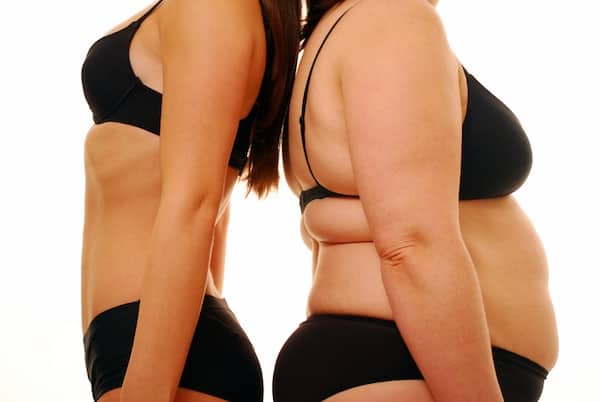
Studies show that sleep deprivation may lead to weight gain. But can getting more sleep help you lose weight? Read on to find out..
We all know that a healthy diet and exercise are necessary for weight-loss. But can sleep also help you maintain a healthy weight or even drop a few kilograms?
“There are more and more studies showing that not getting enough sleep or not getting good quality of sleep can contribute to weight gain”, says Raj Kakar, MC, MPH, the medical director at the Dallas Center for Sleep Disorders.
Sleep and Body Weight: What the Research Says
Just as obesity has become a worldwide epidemic over the past few deades, more people have also become chronically sleep-deprived. According to the National Sleep Foundation surveys, 35% of people were sleeping for eight hours a night in 1998, compared with just 26% in 2005. Researchers believe that both the sleep deprivation and obesity epidemic may be related.
A recent study followed a group of 40- to 60-year-old women for five to seven years and tracked their weight and sleeping patterns. The researchers found that women who reported having trouble falling asleep, waking up frequently at night, or having trouble staying asleep were significantly more likely to have “major weight gain” (gain of 11 pounds or more).
Another study examined the eating and exercise habits of a group of young healthy men after sleeping for eight hours and four hours on two consecutive nights. The researchers found that the men ate significantly more (an average of 560 excess calories in their daily diet) during the day after they were sleep-deprived, compared to what they ate after having a good night’s sleep.
Researchers believe that sleep-deprived children may be at especially high risk of having weight problems. Studies have consistently found that getting less sleep than recommended is associated with childhood obesity. In fact, based on sleep studies in children, researchers have calculated that a child’s risk of being overweight or obese is reduced by about 9 percent for each additional hour of sleep per night.
The Link Between Sleep and Diet
Kakar says that it is thought that sleep is associated with body weight for two reasons. First, people who are sleep-deprived may have less energy throughout the day and therefore less motivation to exercise regularly. In fact, people who don’t sleep enough report getting less exercise than people who get enough sleep every night.
Second, the amount of sleep you get seems to affect the appetite-controlling hormones ghrelin and leptin, which can leave you reaching for high-carbohydrate, calorie-dense foods when you haven’t gotten enough sleep. Studies show that sleep deprivation can lead to elevations in ghrelin, which is appetite-stimulating, and reductions in leptin, which is appetite-suppressing.
“Those hormones are thrown out of whack, so as ghrelin gets ramped up and leptin gets pushed down, you are more likely to go for high-carbohydrate foods and high-energy foods, which give you a boost of energy, but can then lead to weight gain,” says Kakar.
Can Sleep Help You Lose Weight?
While mounting evidence indicates that your sleeping habits are related to your body weight, researchers still don’t know for sure whether getting more sleep could actually help you lose weight.
Currently, researchers at the National Institutes of Health are conducting a study to determine whether sleeping for a healthy amount of time each night (about 7.5 hours) can help sleep-deprived people lose excess weight.
Until more research is conducted on the sleep-weight loss association, it makes sense to put “get enough sleep” on your checklist of habits to maintain a healthy weight and keep from gaining unwanted pounds.
Source: Everyday Health.




